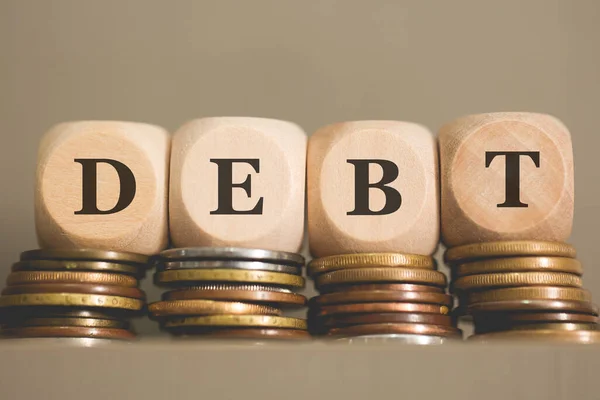Ghana’s public debt crisis: Lessons for the future (2)
At the beginning of the year 2022, expectations were that the COVID-19 pandemic-induced pent-up demand would be released to boost growth, but the onset of the Russia-Ukraine war introduced new uncertainties, aggravating the existing pandemic-related supply bottlenecks, and challenging the recovery efforts.
High inflation, amid tightening global financing conditions, led to a decline in the real incomes of households, cost-of-living crisis, and weighed on growth.
In response to the heightened inflationary pressures, most central banks raised their monetary policy rates aggressively.
The decisive policy actions resulted in the tightening of global financing conditions, with negative spillovers on capital flows to emerging markets and developing economies. (BOG Annual report 2022).
However, by the end of June 2022, Ghana’s economy entered a full-blown macroeconomic and financial crisis on the back of pre-existing imbalances and external shocks.
Large financing needs and tightening financing conditions exacerbated debt sustainability concerns, shutting-off Ghana from the international market.
Large capital outflows combined with monetary policy tightening in advanced economies put significant pressure on the exchange rate, together with monetary financing of the budget deficit, resulting in high inflation.
These developments interrupted the post COVID-19 recovery of the economy as GDP growth declined from 5.1 per cent in 2021 to 3.1 per cent in 2022 and further declined to 1.7 per cent in 2023.
The 2022 fiscal deficit was well above target at 11.8 per cent. Public debt rose from 79.6 per cent in 2021 to over 88.1 per cent of GDP in 2022, as debt service-to-revenue reached 117.6 per cent. (IMF country report, 2022).
According to BOG annual report (2022) opine that on the domestic front, economic growth slowed down to 3.1 per cent in 2022 to 1.7 per cent in 2023 from 5.1 per cent in 2021, on the back of weakened aggregate demand and supply shocks arising from the lingering effects of the pandemic and geopolitical tensions.
Soverign Credit
Sovereign credit downgrades by rating agencies over fiscal policy implementation and debt sustainability concerns led to loss of access to the international capital market which, together with low domestic revenue mobilization, negatively impacted government’s ability to finance the budget.
This prompted the Bank of Ghana to intervene to close the widened financing gap to avert domestic debt default and a full-blown economic crisis.
Despite a healthy trade surplus in the previous year, the balance of payments recorded a deficit of US$3.64 billion on account of significant net outflows in the capital and financial account.
This led to a drawdown of US$3.46 billion in Gross International Reserves from US$9.70 billion at end-December 2021, to US$6.24 billion at end-December 2022, providing 2.7 months of import cover.
The significant drawdown in reserves triggered immense currency pressures and the Bank responded in an agile manner with the innovative Gold for Reserves and Gold for Oil programs, as well as a policy to purchase all foreign exchange arising from the voluntary repatriation of export proceeds of mining and oil and gas companies.
The country’s stock of domestic debt at end-December 2022 was GH¢194.39 billion (31.6 per cent of GDP) compared to GH¢181.78 billion (39.5 per cent of GDP) at end-December 2021.
The increase in the domestic debt stock in 2022 was because of GH¢11.75 billion increase in short-term securities, and GH¢629.70 million increase in the medium-term securities. Long-term securities, -, increased by GH¢222.50 million. Total public debt stock stood at GH¢545.32 billion inclusive SOEs and allied debt at end-December 2022 (88.1 per cent of GDP), higher than the stock of GH¢351.79 billion at end-December 2021. (76.2 per cent of GDP).
The interest payments on the public sector debt increased from GHC 32.53 billion in 2021 to GHC 37.45 billion in 2022 and it remained the single largest item in the 2022 Government annual budget statement.
Foreign debt accumulated rapidly with corresponding interest payments between 2019- 2022, as the country ran into economic difficulties and suspended payments on foreign debt on December 2022, private and public investment collapsed, with total investment to GDP by as much as 5 percentage points.
Ghana registered large fiscal deficits in the past decade, which reached its peak in 2020 with an unprecedented deficit of 15.2 per cent of GDP, and thus sharply increasing the country’s debt stock and debt service costs, thereby creating enormous budgetary difficulties, the government of Ghana naturally aimed at achieving fiscal consolidation in the original 2022 budget.
Heavy public debt service obligations resulted in a large risk premium on interest rates, periodic bouts of financial market instability, and a crowding out of bank credit to the private sector, all of which had contributed to a very low potential growth rate. It is a fact that heavy indebtedness has become the bane of most developing countries in the 21st century, and Ghana is no exception. Consistently, Ghana’s total debt stock has been on a rising trajectory, plunging the country into a debt trap and distress.
The total debt stock at the end of 2022 amounted to GH₵546.15 billion, which constitutes 88.1 per cent of GDP (105 per cent of GDP with inclusion of key SOEs and allied debts), and it is projected to reach a staggering GH₵863.5 billion at the end of 2023 ( 2023 PwC Ghana Banking Survey Report).
Economic Fundamentals
The country’s economic fundamentals had deteriorated to the extent that the traditional fiscal consolidation measures embodying expenditure restraint and revenue enhancement measures were inadequate and therefore restructuring had become fundamental to restoring fiscal sustainability.
The Ghanaian economy has witnessed poor revenue growth, low export earnings from cocoa, gold, and oil because of over-dependence on international capital markets and low tax capacity over past decade.
The country’s debt stock as a result has increased considerably over the past decades – a trend generally connected with expansion in the size of government expenditures. Ghana’s economy entered a full-blown macroeconomic crisis in 2022 on the back of pre-existing imbalances and external shocks.



